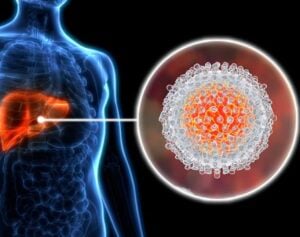By Tom Latek
Kentucky Today
Public health officials are urging adults to get tested for Hepatitis C virus (HCV), which infects the liver and over time, can cause liver scarring, cancer and even death.
Although HCV can be cured, many people don’t get treatment that could protect their health because they don’t know if they are infected or they don’t know that medications are available.

Louisville Public Health and Wellness says Kentucky has one of the highest rates of HCV in the country, and that in Louisville alone, over 2,000 people test positive for HCV each year.
Because the virus can slowly damage your liver over many years, diagnosing it early through testing is one of the most important ways to protect your health.
HCV spreads through blood-to-blood contact. The most common way people get it today is by sharing needles or other equipment used to inject drugs. It can also spread through unregulated or unsanitary tattoos or piercings, or by sharing items that may have tiny amounts of blood on them, such as razors or toothbrushes. A pregnant woman can pass it to her baby. HCV is occasionally spread through sex. Most reported cases of sexual transmission are among men who have sex with men. Importantly, HCV does not spread through casual contact. Things such as kissing and sharing food do not put you at risk.
People infected with HCV can look and feel healthy. Some may experience fatigue, nausea, joint pain, or yellowing of the eyes or skin, but many don’t have any symptoms until the liver is already damaged, which can take up to decades to occur. Over time, untreated HCV can lead to serious liver problems, including cirrhosis (scarring), liver cancer, or liver failure, and can even cause death. This is why testing matters so much, even if you feel healthy.
Health experts recommend that every adult gets tested at least once for HCV. Some people may need to be tested more regularly, such as those who inject drugs, have HIV, or have accidental to another person’s blood. Testing is simple, usually a quick finger-stick for an antibody test to determine if your body has been exposed to HCV. If that test is positive, another test is done to determine if you have an active infection.
If you haven’t been tested as an adult, talk to your healthcare provider about it at your next visit.

















